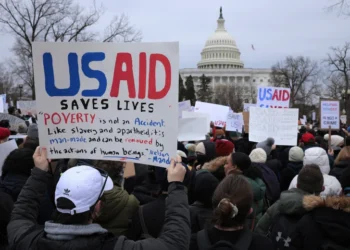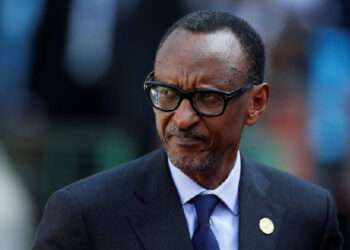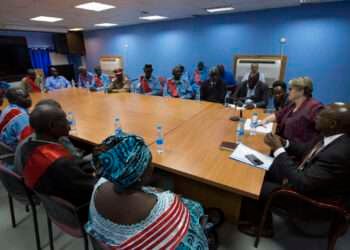The African Development Bank will launch its 2021 African Economic Outlook on Friday, 12th March 2021. Unlike previous launches of the African Economic Outlook, this year’s event will be held virtually as a result of the COVID-19 pandemic. The theme of this year’s report is ‘From Debt Resolution to Growth: The Road Ahead for Africa’, which examines Africa’s growth performance and outlook and presents the socio-economic impact of the COVID-19 pandemic.
Africa is projected to recover in 2021 from its worst economic recession in half a century, but the continent still faces significant challenges related to COVID-19 vaccinations and debt burdens. According to the African Development Bank, one of the most significant consequences of the COVID-19 pandemic has been a rise in the borrowing needs of African governments to cover expenditures induced by the health crisis.
The launch will be attended by African Development Bank Group’s President Akinwumi A. Adesina, Nobel laureate Prof. Joseph Stiglitz, government ministers and Governors of the Bank, representatives of the diplomatic corps, researchers, and industry experts.
Following a presentation on the African Economic Outlook, a panel of senior policymakers, sovereign debt experts, and private sector practitioners will discuss the report and present their views. Panelists will focus on helping African countries build back better from the crisis and manage debt vulnerabilities.

The African Economic Outlook is the Bank’s flagship tool for economic intelligence, policy dialogue, and operational effectiveness. The report is read widely by policymakers, academics, investors, development practitioners, and the media.
The African Economic Outlook supplement released in July last year described Africa’s economic prospects as weak with Real GDP in Africa projected to contract by 1.7 percent in 2020, dropping by 5.6 percentage points from the January 2020 pre-COVID–19 projection, if the virus has a substantial impact but of short duration.
The African Development Bank, however, indicated that in case the virus continues beyond the first half of 2020, there would be a deeper GDP contraction in 2020 of 3.4 percent, down by 7.3 percentage points from the growth projected before the outbreak of COVID–19.
The Bank further indicated that cumulatively, GDP losses could range between $173.1 billion and $236.7 billion in 2020–2021. With the projected contraction of growth, Africa could suffer GDP losses in 2020 between $145.5 billion (baseline) and $189.7 billion (worst case), from the pre-COVID–19 estimated GDP of $2.59 trillion for 2020.
The Bank in its 2020 Outlook, expected some of the losses to be carried over to 2021, as the projected recovery would be partial. For 2021, the projected GDP losses could be from $27.6 billion (baseline) up to $47 billion (worst case) from the potential GDP of $2.76 trillion without the pandemic.
“The most affected economies are those with poor healthcare systems, those that rely heavily on tourism, international trade, and commodity exports, and those with high debt burdens and high dependence on volatile international financial flows. The overall impact of the pandemic on socioeconomic outcomes remains uncertain, however. It will depend crucially on the unfolding epidemiology of the virus, the extent of its impacts on demand and supply, the effectiveness of public policy responses, and the persistence of behavioural changes”.
The 2020 Outlook, however, highlighted that growth has been less than inclusive. Only about a third of African countries achieved inclusive growth, reducing both poverty and inequality.
Released annually since 2003, the African Economic Outlook provides compelling up-to-date evidence and analytics to inform and support African decision-makers.




















